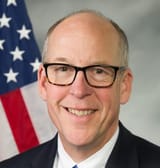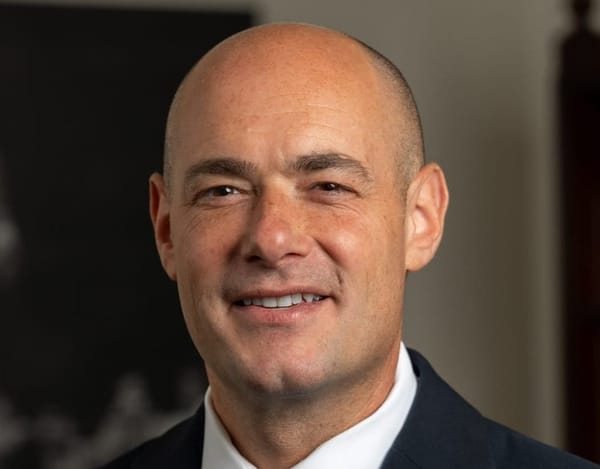GPS Needs a Backup, Terrestrial PNT Is the Answer
The FCC issued a public notice to seek comment on rearranging the spectrum in the Lower 900 MegaHertz band.
Loretta Sanchez, Greg Walden

GPS is an incredible technology that has become increasingly important to our day-to-day lives. We rely on GPS for positioning, navigation, and timing (PNT), but it’s so much more than the maps on our phones.
It powers much of our nation’s critical infrastructure, including electricity, telecommunications, public safety, and banking.
Without GPS, traffic would come to a standstill, banks could freeze funds, emergency services such as ambulance deployment would slow, and power plants could grind to a halt. Even America’s farmers use GPS to increase their crop yield. It is hard to overstate just how important this technology is to our daily lives. A day without GPS would wreak havoc.
A day without GPS could be a legitimate threat
Yet a day without GPS might not just be science fiction — it could be a legitimate threat. Unfortunately, we’ve likely all experienced coverage limitations with GPS and other space-based systems while indoors and in urban canyons. But even scarier, perhaps, are man-made threats.
GPS is vulnerable to spoofing and jamming by rogue and state actors, including our adversaries. A recent White House memo explained we are under threat from both non-state and “nation-state actors who target American critical infrastructure.” Critical infrastructure includes our digital infrastructure, powered by the PNT from GPS.
We’ve seen examples of GPS jamming and spoofing in and around conflict zones around the world, including countries neighboring Russia and across the Middle East.
This is a problem we both understand well. While Rep. Walden owned and operated radio stations and chaired the Energy and Commerce Committee, Rep. Sanchez worked in the defense sector and served on both the House Armed Services Committee and the Committee on Homeland Security. We have seen the two sides of this coin: how technologies like GPS are so vital to everyday existence, yet so dangerous in the hands of harmful actors.
Terrestrial complement back to GPS necessary
To protect our national security, the U.S. needs a terrestrial complement and backup to GPS.
However, this is easier said than done. It has historically not been economically feasible to deploy a standalone, wide-scale, terrestrial 3D PNT network. GPS is free, which limits potential revenue for other PNT offerings. Government funding is unlikely given the billion dollar price tag. As they say, “the math just isn’t there.”
But there may be an answer. The FCC issued a public notice to seek comment on rearranging the spectrum in the Lower 900 MegaHertz (MHz) band to enable its use for terrestrial 3D positioning PNT services by NextNav, a global leader in this technology. This plan would create a complement and backup to GPS that is a 5G solution, so it will be more easily integrated into the existing ecosystem. If our GPS system went down, this PNT solution would step in.
Not only does this plan solve a major national security vulnerability, but it also frees up airwaves for broadband. In our data-hungry wireless world, this is increasingly important and increasingly scarce, so creating more bandwidth for 5G broadband is a win. This plan also improves horizontal and vertical location accuracy, helping first responders find 9-1-1 callers and improving emergency response times, ultimately saving lives. It would be a win for national security, public safety, and 5G — all promoting the public good without any taxpayer dollars or legislation.
America must be a leader in deploying this technology, but we are starting to fall behind. China already has a backup to its version of GPS and other adversaries may soon follow. If we as Americans are passionate about securing our position as a global leader, protecting our nation’s critical infrastructure, and bolstering our national security, we should support innovative opportunities like the one the FCC is seeking comment on.
Greg Walden is the former Republican chair of the House Energy and Commerce Committee, having served 10 terms representing Oregon’s second Congressional District. Loretta Sanchez also served for 10 terms in Congress representing California’s 46th District, including as a senior Democratic member of both the Armed Services and Homeland Security Committees. This Expert Opinion is exclusive to Broadband Breakfast.
Broadband Breakfast accepts commentary from informed observers of the broadband scene. Please send pieces to commentary@breakfast.media. The views expressed in Expert Opinion pieces do not necessarily reflect the views of Broadband Breakfast and Breakfast Media LLC.









Member discussion